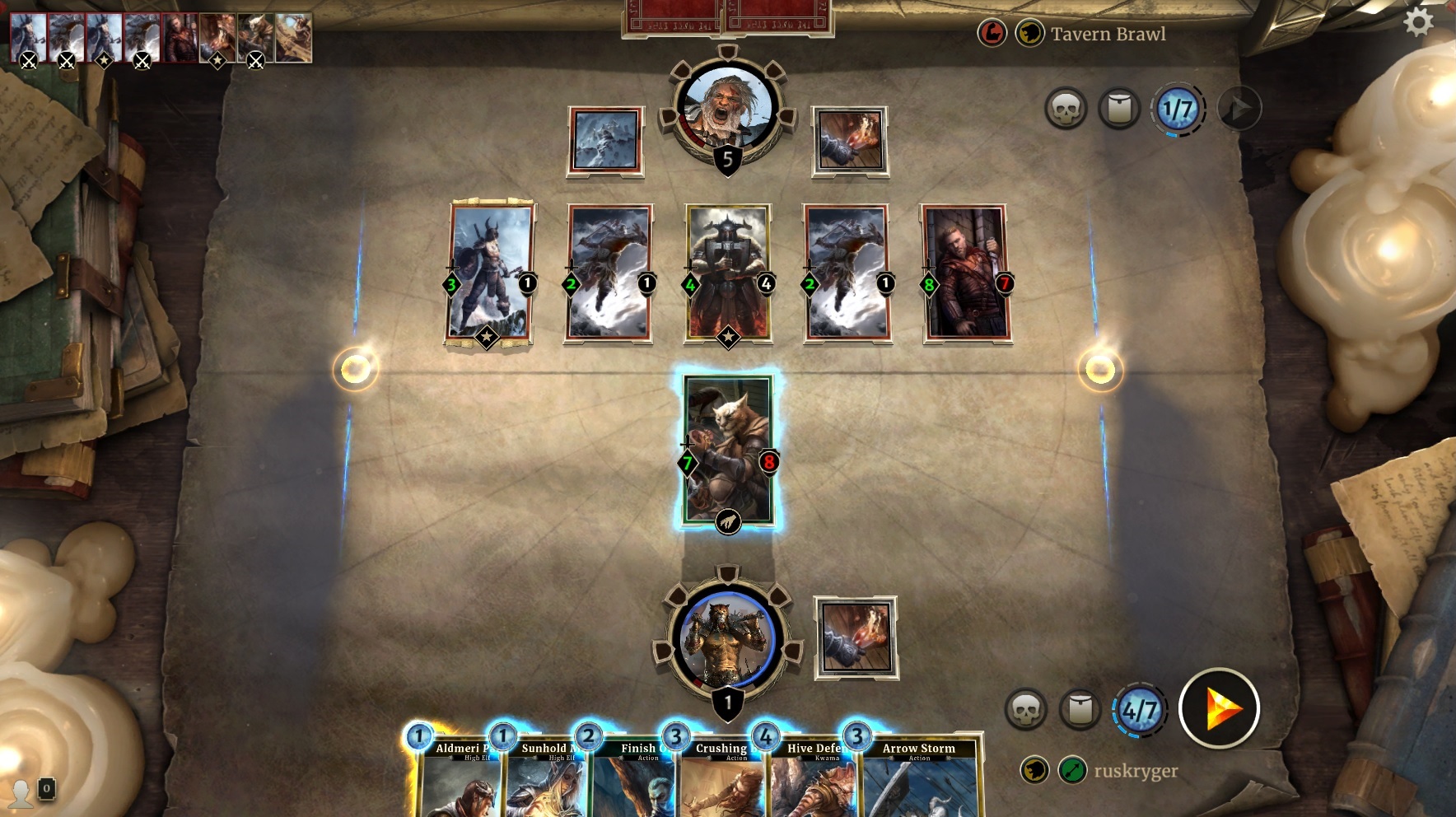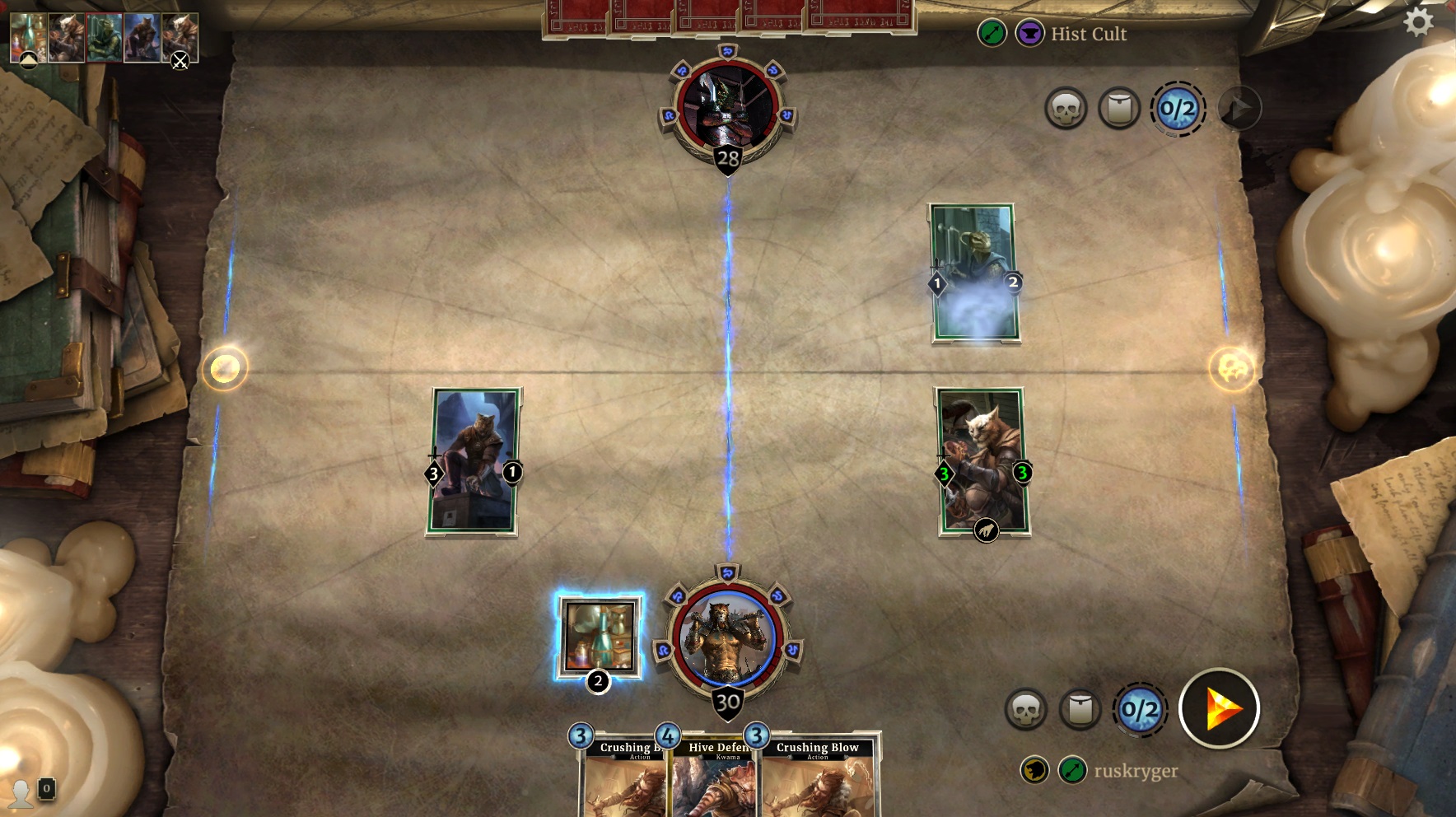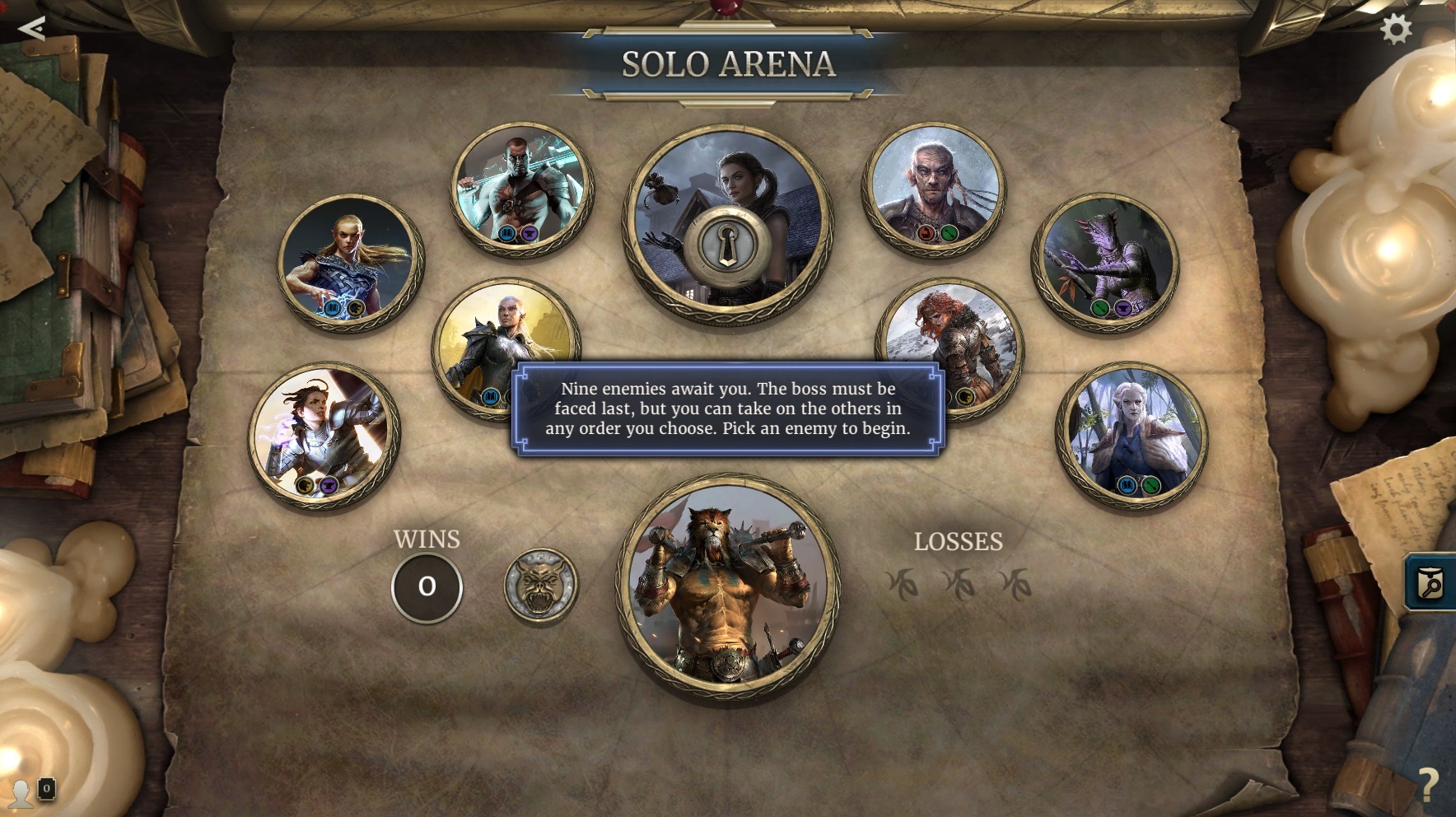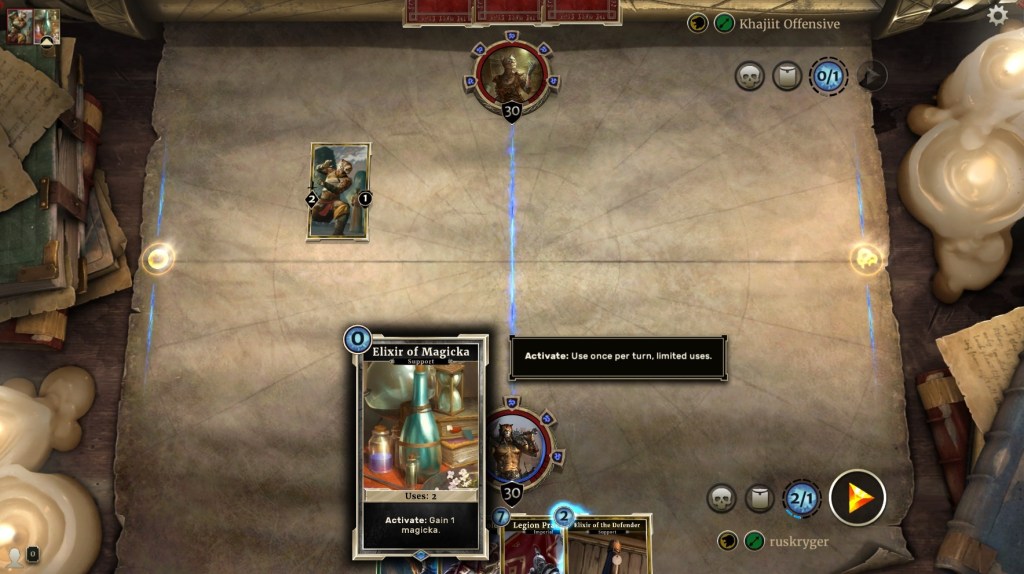Move over, Magic: The Gathering. There's a new card game in town.
Having spent about six hours (and counting) with the closed beta for The Elder Scrolls: Legends, a collectible card game based on The Elder Scrolls series, I can safely confirm what I experienced with the game earlier at Bethesda's showcase at E3 2016. It's a remarkable improvement over Magic: The Gathering and its complementary Duels of the Planewalker series, and this is coming from someone who grew up playing MTG throughout my teenage years and have consistently given DotP high marks.
Perhaps this is surprising given that The Elder Scrolls: Legends is Bethesda's first crack at a virtual collectible card game, but the developer clearly understands and has consequently fixed some of the limitations of Magic: The Gathering. Here are just five ways how.
1. You Will Never Be Mana-F***ed
When playing Magic: The Gathering, you can easily be screwed over if you are unable to draw enough lands for mana. Even if you mulligan your hand at the start of the game, there's no guarantee that you'll get the mana you need and that the top handful of cards will also have the lands you need to continue casting cards from your hand. Then on the flipside, you might draw land after land midway through the game when they're pretty much useless.
By comparison, The Elder Scrolls: Legends does away with land cards altogether and simply grants you one additional magicka per turn, which effectively boils down to the game assuming that you've drawn one land in MTG by default every turn. By taking out land cards, this makes each draw of the deck more important and more interesting, and it ensures that you have the magicka you need without shaking your fist at the gods of fate for not getting enough or getting too much magicka. On top of that, it notably accelerates matches, keeping them well-balanced between complexity and speed.
Further eliminating the problem with mana draws, the second player in a standard match receives an Elixir of Magicka, which when activated grants one additional mana up to three times. This gives the second player more flexibility in exchange for the first player being able to lay down cards first. It's a simple change that gives the second player more options, while still allowing the first player to draw a card at the beginning of the game.

2. Runes Give You Cards When You Need It
Magic: The Gathering duels can rely heavily on the luck of the draw, and if you're on the losing end, it's difficult to make a comeback if you're just not drawing the cards you need. But in The Elder Scrolls: Legends, getting your life knocked down will grant you free extra cards. When your life total is reduced to 25, 20, and so on until 5, you can draw an additional card that might make all the difference in thwarting your enemy's plans.
Better yet, if you manage to draw a card with the "prophecy" keyword due to rune loss, you can play that card at no magicka cost. There's nothing like being attacked by an enemy, only to then draw a Portcullis due to rune loss, and plopping the 0/9 wall to stop the enemy's other forces from getting through in exactly the same turn. You might even draw prophecy cards that deal direct damage to a target, give you additional life, or cast a creature that you immediately use on your next turn since it doesn't have summoning sickness as normal.
Overall, this rune mechanic evens the playing field and gives you and the opponent a fairer shot at turning the tides, making for a more dramatic and strategic match.

3. Two Attack Lanes Makes Gameplay More Strategic
Offense and defense isn't as simple here as it is in Magic: The Gathering. Enemies will go through your defenses if you mount no resistance in the proper lane and if you don't have creatures that can guard. That's right, you need creatures that have the privilege to block in order to do so.
As you might have guessed, how you place your summons on the board matters. Some cards may only impact creatures in a particular lane, and sometimes it's better to have a lopsided offense in one lane instead of spreading out your summons between both lanes. This element of lane control adds a layer of depth that's refreshing and conceptually easy to grasp without overwhelming the playing field or unnecessarily extending the length of a match.

4. You Can Recycle Cards Into Soul Gems
Any excess cards you receive from packs or otherwise (you can only use up to three of any card in a deck anyway) can be transformed into a freeform currency called soul gems—with rarer cards giving more of them of course—which can then in turn be used to create any card of your choice. Of course, creating a legendary card from soul gems can require a ridiculously high number of soul gems. The rarest ones can cost 1200 gems when a common card only nets you 10 gems if you break it down. But at the very least, you can create the cards you want to form whatever deck you choose.
As a fan of the Khajiit race in The Elder Scrolls, I'm attempting to build a Khajiit-themed deck based on pilfering, but the starting decks don't come with many Khajiit cards. Having the ability to fill in the gaps by getting rid of cards I will never use markedly improves the flexibility and the customizability of deck creation. And leads me close to warm sands.
 Solo Arena is a challenging survival-based draft mode
Solo Arena is a challenging survival-based draft mode5. It Has Very High Production Value
Compared to the Duels of the Planeswalker series (and to a lesser degree, Hearthstone), The Elder Scrolls: Legends sets a new standard for smooth and clear interface design, paired with a strong, unobtrusive soundtrack and voiced dialogue for each card as well your avatar. Even in this beta playtest, it has only stalled on me once on a loading screen. The deck building mode in particular is very easy to use, though one caveat I have is that you can currently only build decks using two colors.
In addition to a story campaign with multiple acts, the game has competent versus play as well as a survival-based arena mode, which works similar to a draft tournament. In this mode, you build a separate deck from a selection of three cards that are presented at random and are challenged with taking that deck and facing off against eight opponents (plus a boss). Failing three times will end your run, but gathering wins will net you great rewards.
The Elder Scrolls: Legends looks right on track on becoming a popular CCG video game, and both Magic: The Gathering and Hearthstone will need up their ante once it arrives later this year.











